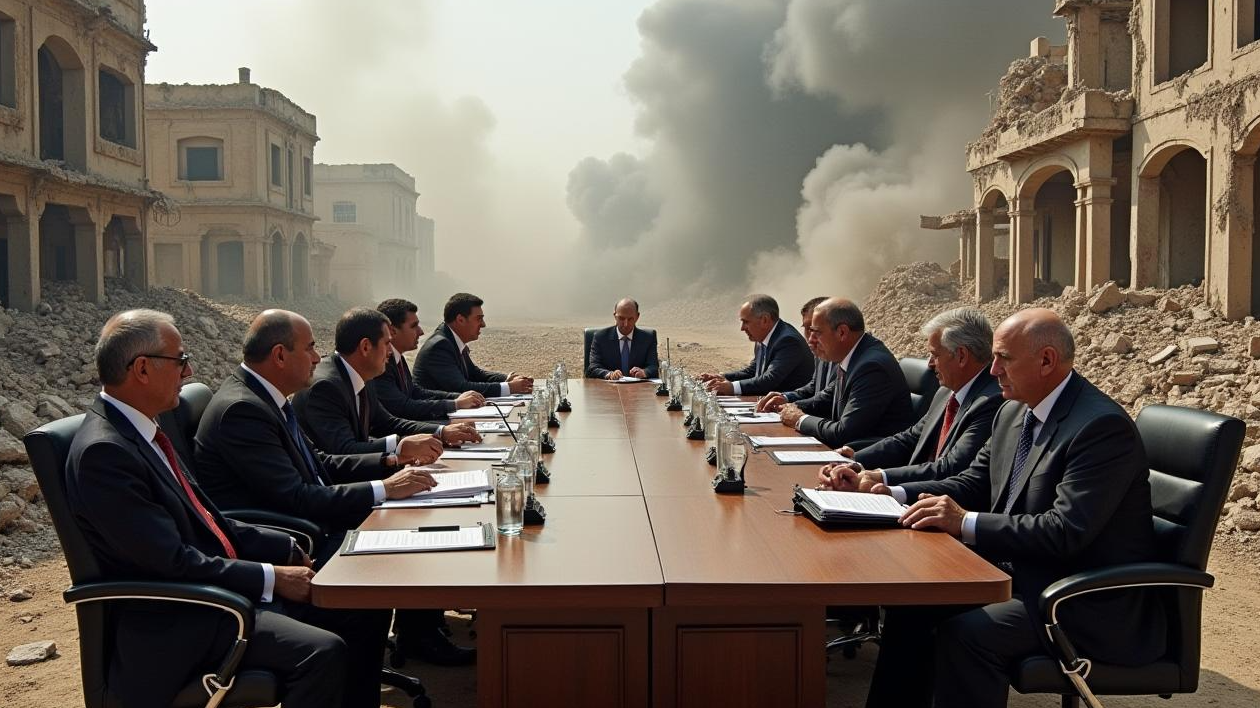Behind Hamas’ Claims of Victory
Al-Arab, London, January 31
In the second round of prisoner exchanges between Israel and Hamas, Hamas orchestrated a media spectacle to project the notion that it remains undefeated following the recent conflict. For much of the world’s populace, particularly the Arab community, displaying dignity, pride, courage, and resilience in the face of profound pain and loss is crucial. However, this media display, insinuating that Hamas retains its strength and popularity by showcasing its mechanisms, its distributed members, and the congregation of supporters in the aftermath of the Israeli operations in Gaza, muddies the waters of progress.
With Hamas positioned prominently in governance, the process of reconstruction is hindered or potentially stalled, providing a rationale that aligns with the Israeli right’s narrative, sustaining conflict, and deterring investors from considering involvement in rebuilding efforts.
Militarily, Mousa Abu Marzook, a leading Hamas figure, remarked candidly in an Al-Arabiya interview that “what transpired was not a war between two parties and two military forces, but rather an extermination campaign.” This raises an enduring question: how can one claim victory amidst annihilation? The scope of the devastation is national, not confined to villages like Deir Yassin, Kafr Qasim, or Tantura, where the number of fatalities was in the dozens, not the tens of thousands as witnessed in Gaza. Did past massacres result in victory? Consider that.
This holiday season, give to:
Truth and understanding
The Media Line's intrepid correspondents are in Israel, Gaza, Lebanon, Syria and Pakistan providing first-person reporting.
They all said they cover it.
We see it.
We report with just one agenda: the truth.


Meanwhile, criticisms persist against Palestinian leadership concerning the Oslo Accords. Yet, the Gaza agreement is even less substantive than Oslo, which encompassed the full homeland, liberating significant prisoners and lands, enabling the return of over half a million refugees, all accomplished without bloodshed. True victors liberate, reclaim refugees, and win battles, not lose them, as exemplified by the subsequent reoccupation of Gaza despite its complete liberation.
Furthermore, political analysts highlight clauses in the Gaza agreement facilitating the departure of 1,500 wounded individuals with families, implying the withdrawal of Qassam militants from Gaza. Hamas inherently understands that its governance in Gaza is untenable, and lacking international support, evidenced by the Rafah crossing’s management, free of Hamas control, compounded by humanitarian fallout from the October 7 conflict and geopolitical tensions resulting from US President Donald Trump’s proposals to relocate Gazans to Egypt and Jordan—a stance met with staunch Egyptian-Jordanian rejection, straining relations with the US.
The Arab region is unwilling to sustain Hamas’ rule in Gaza due to ramifications on both Palestine and its neighbors’ regional security. Hamas’ claimed victory extends beyond rhetoric, seeking to fortify itself and evade future national accountability for crises it has precipitated for its people and allies, such as Qatar, which visibly distanced itself, as shown in the Qatari prime minister and foreign minister’s statements during a Paris interview with Israeli media.
Similarly, Syria, recently recovering from turmoil, has not engaged with Hamas representatives; the Syrian administration insists Palestinian relations be conducted through their embassy in Damascus, excluding faction representatives like Hamas. Meanwhile, Iran, an ally, is preoccupied with internal losses, focused on instigating unrest in Syria while safeguarding its regime and nuclear ambitions amidst a historic period of instability.
Hamas, with limited allied nations and militias for support, faces vulnerability without them, contrasting the Palestine Liberation Organization, which boasts legitimacy from extensive global diplomatic networks, independent of any singular axis or ideology. Unlike Hamas, the PLO’s credibility endures despite geopolitical shifts, illustrated by the endurance of its representation following the Soviet Union’s collapse and Saddam Hussein’s downfall—highlighting a profound paradox.
Aws Abo Ata (translated by Asaf Zilberfarb)

